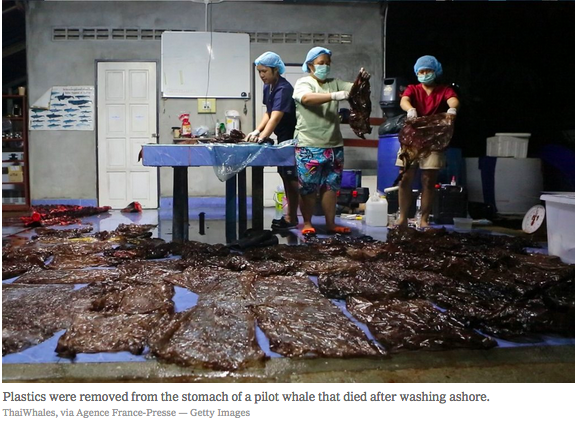HONG KONG — Hundreds of turtles, dolphins and whales become stranded every year on Thailand’s beaches after plastic impedes their mobility or clogs their insides. Some are lifeless on arrival, biologists say, and their deaths barely register with the public.
But the survival of a pilot whale that washed ashore in southern Thailand last week, in critical condition and with a belly full of black plastic bags, became a cause célèbre for ordinary people. And its death a few days later was a vivid reminder of a staggering global problem: plastics in the oceans and seas.
“Many in the region and around the world are extremely concerned about such incidents,” Suresh Valiyaveettil, a chemist at the National University of Singapore who studies how polymers interact with living systems, said in an email. “Considering the amount of plastic in the ocean, unfortunately, such incidents are going to be more common in the near future.”




